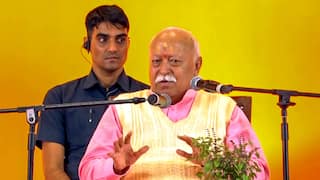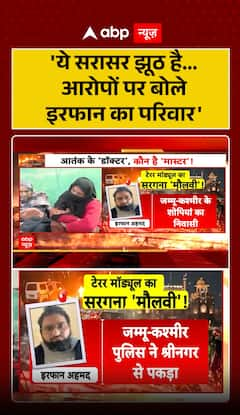Employee Has 'Right To Vent', Action Can't Be Taken For Messages Posted In WhatsApp Group: Madras HC
In a significant observation, Madras HC said that every employee of a company has a 'right to vent' and management cannot take action for messages posted in a WhatsApp group chat.

The Madras High Court has said that every employee has a "right to vent" and dismissed a charge memo issued against an employee of the Tamil Nadu Grama Bank, reported the Live Law. The court observed that the management of a company cannot take action against an employee for messages, critical to oragnisation, that were posted in a private WhatsApp group chat so long as such messages were otherwise within the legal bounds.
The petitioner, Lakshminarayanan, was working as Group B Office Assistant (Multipurpose) in Tamil Nadu Grama Bank and was also a trade union activist. He moved the high court challenging the charge memo issued against him in a disciplinary proceeding for posting messages mocking the administrative process/decisions in a WhatsApp group on 29.07.2022.
"There is something called “right to vent”. Every employee or a member of an organization will have some issue or the other with the management. To nurture a sense of grievance is quite natural. It is in the interest of the organization that the complaints find expression and ventilation. It will have a cathartic effect. If in the process, the image of the organization is affected, then the management can step in but not till then," the court noted while hearing the plea, as quoted by Live Law.
Justice GR Swaminathan said that it is expected that an employee shows courtesy to a superior officer, but while gossiping privately, the superior officer may come in for all kinds of criticism.
"Judged by the above standard, the message posted by the petitioner cannot be said to attract the Conduct Rules laid down by the management. Any employee is bound to show courtesy to the superior officer in his dealings. But while gossiping privately with a fellow employee, the officer may come in for all kinds of criticism. If this had taken place over a cup of tea outside a shop, the management could not have taken note of it. Merely because the same exchange took place among a group of employees on a virtual platform with restricted access, it cannot make a difference," the court said.
Noting that a Government servant cannot claim the same extent of right that a private citizen enjoys as he is governed by conduct rules, the court said, "Article 19(1)(a) of the Constitution of India guarantees freedom of speech and expression. It is of course subject to reasonable restrictions. A government servant definitely cannot claim the same extent of rights which a private citizen enjoys," as quoted by Live Law.
"He is governed by Conduct Rules. The petitioner is also placed likewise. When even prisoners have fundamental rights and it has been declared by the Apex Court that Part III of the Constitution does not stop at the prison gates, it would be ridiculous to suggest that the moment a person becomes a bank employee, he has to bid good-bye to Article 19(1)(a). The fundamental right insofar as it applies to the petitioner might have lost a bit of sheen, but its core would remain with all vigor," the court was further quoted as saying in the Live Law report.
The bench noted that private chats will not attract the management’s regulatory framework. It added that with the world becoming a global village, the principles applicable to a chat in a home will also be applicable to what takes place in an encrypted virtual platform that has restricted access.
The common law principle is "everyman's home is his castle", the court observed, adding that if bar room gossip is published, that would definitely attract contempt of Court, but so long as it remains private, cognisance cannot be taken.
The bench further said that like individual privacy, the time has come to recognise the concept of "group privacy" and so long as the activities of a group do not fall foul of law, their privacy needed to be respected, Live Law stated in the report.







































